Shot-in-the dark strategies and misinformed decision-making – these are all challenges of the past. Leading us out of the dark is artificial intelligence, machine learning, and deep learning – they are orchestrating the digital revolution. Ensuring that sales teams are at the forefront of this revolution, Vymo has been developing its AI capabilities. These capabilities are not only to streamline processes but also enable sales teams to focus their efforts where they matter most, driving greater efficiency and effectiveness. With Vymo’s mobile app your ability to drive success with data-precision and automation is at your fingertips.
Welcome to a new era of sales excellence with Vymo.
Let’s explore further how these AI capabilities (see below) within the Vymo app can transform the game for sales teams.
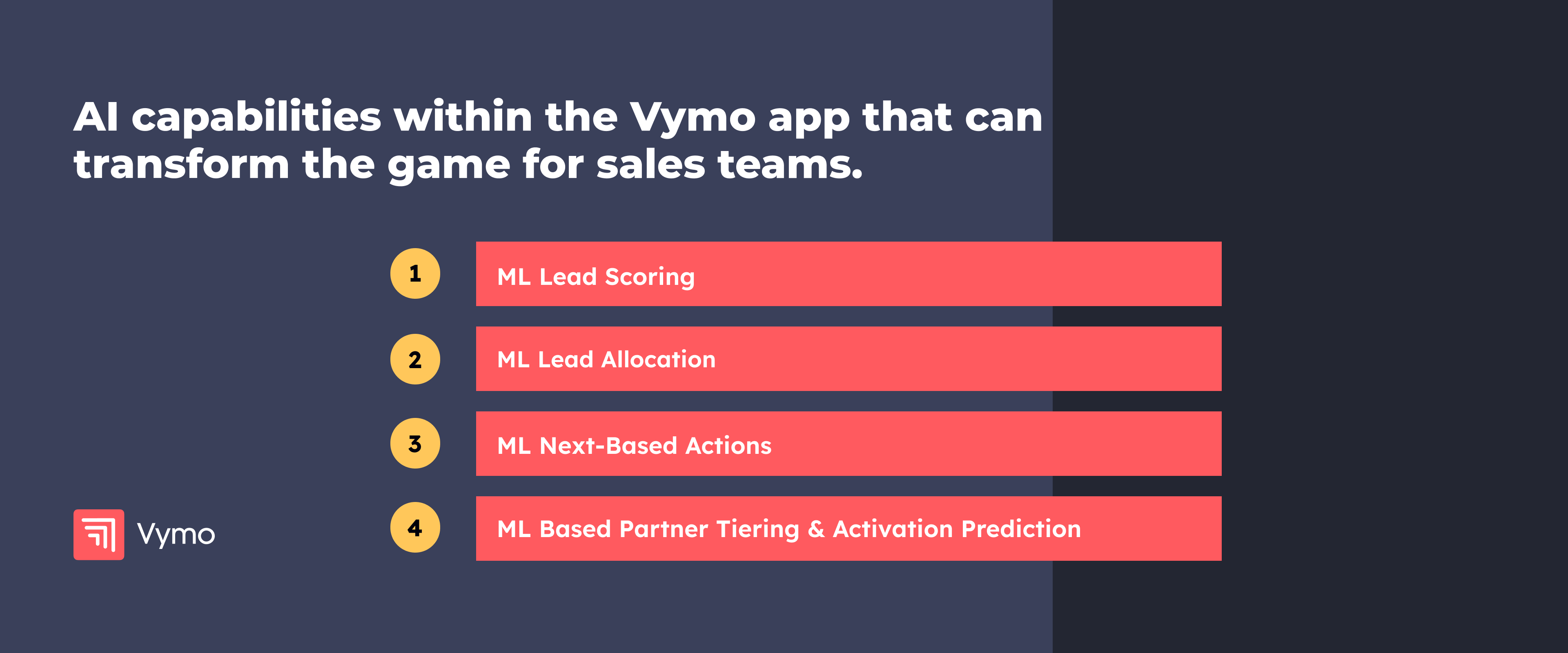
ML Lead Scoring
When evaluating sales performance, one crucial aspect is the lead conversion rate (LCR). Often, leads slip through the funnel, causing sales teams to struggle in meeting their LCR targets. Imagine if this challenge could be mitigated with Vymo’s ML lead scoring model?
By analysing attributes associated with successful conversions from historical lead data, the ML model assigns scores to each lead. It then generates predictive scores based on conversion probabilities, prioritising leads for sales reps. The algorithm operates on data and training pipelines customised for each client and their respective verticals. Vymo continually monitors these pipelines to ensure the accuracy and relevance of predictive lead scores.
Ultimately, this results in faster conversions, enabling sales teams to allocate their time and resources more effectively towards revenue-generating activities.
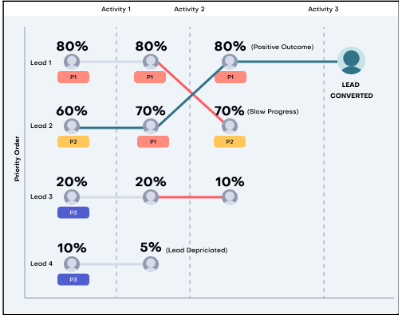
ML Lead Allocation
Sales managers often wear multiple hats – they’re coaching their teams, managing a vast lead network, tracking revenue lines, and more. Alongside their strategic role, they’re also involved in daily operations such as lead allocation.
Traditionally, lead allocation is typically done manually or with simple automation models like round-robin. These methods are prone to inaccurate outcomes and do not guarantee the best sales rep to lead fit.
By leveraging historical datasets and a rule-based framework, the ML lead allocation model identifies the best sales rep to lead fit. The rule-based framework outlines parameters such as product type, lead demographics, and sales rep performance to predict the likelihood of lead conversions. The ML algorithm runs on the rule-based system and historical dataset to determine the best sales rep to lead fit.
Equipped with a sound-proof ML lead allocation system, sales managers can “allocate” their time and energy towards more strategic tasks.
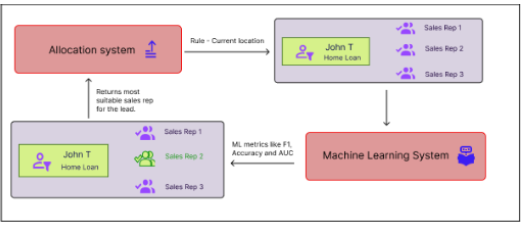
ML Next Based Actions
Sales performance metrics rests upon one crucial factor: efficiency. However, many times, sales reps engage in activities in a suboptimal manner (at the wrong time or with the wrong context). For sales reps, this results in a decline in efficiency, leading to a decrease in lead conversion rates.
To address this challenge, Vymo introduces personalised nudges, or next-based actions, to identify the right time and contextual intelligence for engaging a lead. These nudges are triggered within the mobile app, providing sales reps with the opportunity to improve their efficiency and increase lead conversions.
The ML NBA model builds upon the ML lead scoring model to prioritise which leads to target, when, and how. Drawing insights from lead history details, sales rep track history, product attributes, and client-specific datasets, this model generates personalised nudges by analysing multiple permutations and combinations of the dataset. The outcome of this algorithm is the most effective approach in engaging a lead.
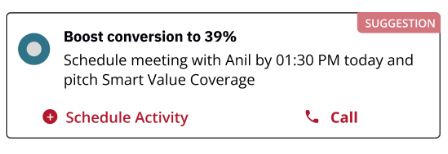
ML Based Partner Tiering & Activation Prediction
Managing the performance and operations of a large partner network can be a challenging task. Vymo offers an automated solution (ingrained in machine learning) developed to streamline partner engagements.
The ML model automates the clustering of partners according to their performance and forecasts potential inactivity among partners. It leverages rolling leads-based metrics, partner branch attributes, and activity data to determine their tiering. These metrics encompass leads won, average premium amount, lead conversion rate, percentage completion, meeting duration, and others, spanning a 10-year timeframe. Based on this data, the ML model groups partners into gold, silver, and bronze tiers – offering a more structured perspective into partner engagement.
Enforcing the ML algorithm on a monthly basis, the model monitors partner performance. This ensures that time, resources, and engagement strategies dedicated to partners, are tailored to achieve higher return on investment.
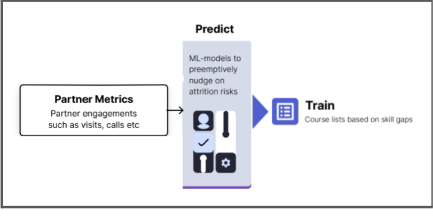
What’s the bottom line?
Our ML models optimise sales engagement, boosting both conversion metrics and customer experience in one stroke. The prediction capabilities enable sales reps and sales management to pursue preemptive engagement strategies. It helps answer the perennial question of “how is business doing?” faster and more intuitively. All in all, they enable teams by freeing them up to focus on what they do best – making the sale.
Although the Vymo team has been focused on building out its AI capabilities, we also value human interactions. You can connect with us here and a Vymo representative will reach out to you.



